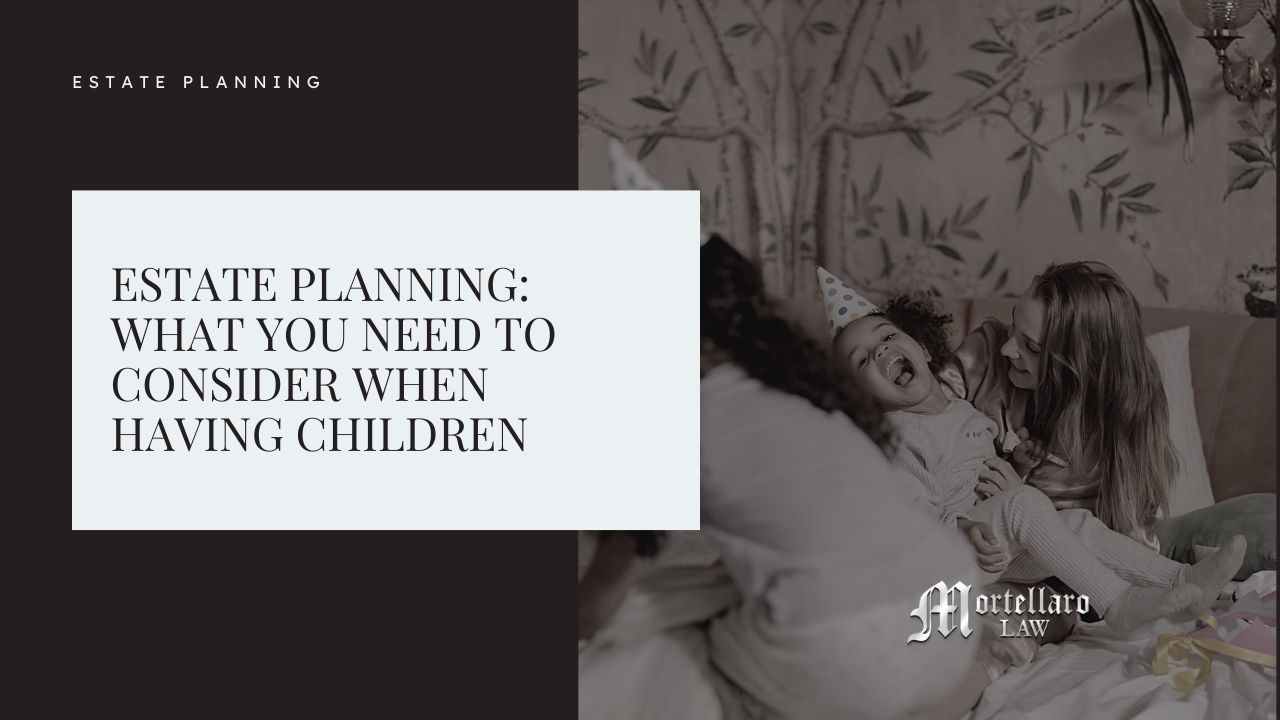Estate planning is the furthest thing from your mind when you become a parent. You’re thinking more about baby names, potty training, and preschools. Estate planning, however, is more critical now than at any other time in your life. Hopefully, you will be around until your children are adults. But just in case the worst happens, you need a plan that cares for and protects your child throughout their lifetime.
Here’s a brief list of the estate planning things you need to consider when having kids.
Review Your Beneficiaries
An important estate planning step, with kids or without, is to review the beneficiaries on all your financial accounts. You may already have some accounts with a designated beneficiary, such as a 401(k) or IRA, which commonly require you to name someone upfront. But you may not have listed beneficiaries on your bank or investment accounts.
Once you’ve inventoried your beneficiaries, you get down to the business of naming the proper beneficiaries for each account. That may be your spouse, but you may also want some of it to go directly to your children. Just keep in mind that minors cannot inherit property; that means you’ll have to consider a few other estate planning documents.
Consider Setting Up a Trust
Trusts are not only for the wealthy. A trust can be a valuable estate planning tool for many families who want to protect their assets and ensure their children’s secure future – especially when leaving anything to your kid.
Without the proper protections in place, the probate court will decide who manages your child’s inheritance. But when you create a trust, you can name a designated person (called a trustee) to manage money on behalf of your children and provide instructions to use the funds to care for your kids as they grow.
The trustee manages your children’s finances until they become adults and can manage their finances themselves. The trustee can pay bills, file tax returns, invest funds and distribute funds to your children, as directed.
Make a Will and Name a Guardian
A will is the most basic and best-known estate planning document. For parents, the most crucial reason to make a will is to name a guardian for your children. By designating a guardian, you get to choose someone to raise your kids if something happens to you and their other parent. It should be done as soon you are expecting a child; it’s that important.
Your child’s guardian might also be an excellent choice to be a trustee too. Or you may want to name them as co-trustee to ensure trust funds are well managed and accessible for your child’s daily needs.
Without a will or trust, you are relying on the laws of “intestacy” – the order in which the state determines who gets assets. It also means your extended family will have to decide with the court – and perhaps fight – over who becomes the guardian of your children.
Set Up Advance Directives
Advance Directives, such as a Durable Power of Attorney or Florida Living Will, help you have a say in their finances or medical treatment even when they are not physically able to make those decisions.
A Durable Power of Attorney is a document that allows you to appoint an individual to make critical decisions on your behalf. It outlines how you want this person to handle your financial, medical, and legal affairs.
By setting up a Florida Living Will, a parent who becomes incapacitated can ensure someone else can access their funds for their child’s needs and make proper health care decisions for the parent in the interim.
Pre-Need Guardian
Similar to the Advance Directives, Florida Statues also allow you to establish a “Pre-Need Guardian” that says who should care for your children in the event you become incapacitated. It may or may not be the same person designated as their guardian in your will. A Pre-Need Guardian might also set up a temporary local guardian if the person you ultimately want to care for your children lives out of town.
There is a lot to consider, but it doesn’t have to be complicated. An estate planning attorney can walk you through the process to decide the best course of action for you and your children. Call our experienced estate planning lawyers at Mortellaro Law today: 813-367-1500 to start the process now, so your family is protected in the future.






